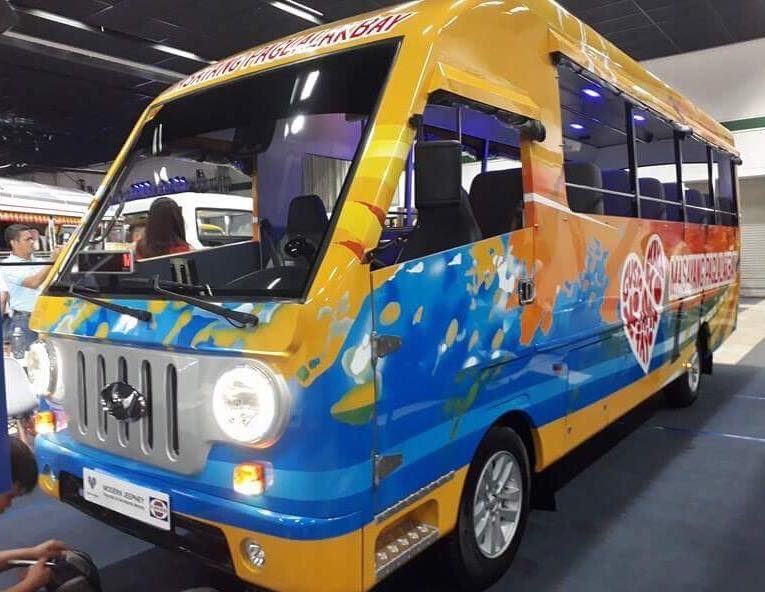SUMMARY
This is AI generated summarization, which may have errors. For context, always refer to the full article.

MANILA, Philippines – A lawmaker on Monday, February 26, said local manufacturers should build the new jeepneys under the public utility vehicle (PUV) modernization program of the government.
In a hearing held by the House committee on Metro Manila development, Ako Bicol Representative Rodel Batocabe said the government should create a different program that would incentivize local manufacturers to build the new jeepneys.
According to the Department of Transportation (DOTr), the government is inclined to implement the Comprehensive Automotive Resurgence Strategy (CARS) program alongside the modernization program to incentivize manufacturers to build parts that cannot be produced locally.
However, Batocabe said a new program should be crafted specifically for the new jeepneys to be made under the PUV modernization program, claiming that CARS “is biased [towards] big manufacturers.” (READ: LOOK: New jeepneys under PUV modernization program)
“We can’t just implement it with the CARS program. This program is different and shouldn’t be connected to the PUV modernization program. We should create a new one [specifically for that],” Batocabe said in a mix of English and Filipino.
CARS, which was signed into law in May 2015, has provided incentives to companies such as Mitsubishi Motor Philippines Corporation and Toyota Motor Philippines Corporation.
Transportation Assistant Secretary Mark de Leon said the government can also look into importing cheaper jeepneys.
But in response to De Leon, Batocabe said: “We should stop [importing] China-made jeepneys. It’s better to manufacture here – that’s what we should look into. It’s better that we get the supply of new jeepneys here in the Philippines because we already make them.”
Batocabe added that importing vehicles may cause problems in vehicle maintenance and replacement of parts in the future.
The Pinagkaisang Samahan ng mga Tsuper at Operator Nationwide (Piston) earlier argued that jeepneys should be made locally. In October 2017, transportation officials said local manufacturers can be tapped for the modernization of PUVs “if they have the capacity.”
Loaning scheme
The cost of the P1.6-million jeepney model has always been a contentious issue in the modernization program, making drivers and operators call the plan “anti-poor.”
Zenaida Maranan, president of the Federation of Jeepney Operators and Drivers Associations of the Philippines (Fejodap), said she approached the Development Bank of the Philippines (DBP) to seek loans for 100 jeepney units but was rejected on the grounds that she has no experience managing a fleet before.
Consolidation into fleets is one of the main changes pushed under the PUV modernization program to organize cooperatives. It is also a requirement to be able to seek loans for units.
De Leon said the DOTr conducts trainings for fleet management which transport groups can attend.
Meanwhile, Maria Del Carmen Hernandez, logistics head of the DBP, said on Monday that the memorandum of agreement with the government is based on the financial viability of the routes.
“We follow the assumption that the shift in business model will result in profitable operations because it depends on the route rationalization program. From there, we will exercise due diligence,” said Hernandez.
However, Land Transportation Franchising and Regulatory Board (LTFRB) Chairman Martin Delgra III said the route rationalization study has yet to be completed. (READ: How Piston imagines jeepney modernization)
The study will define how many jeepney units are needed in a route depending on the number of passengers in that area. While the study is not yet done, Delgra said there was pilot testing in areas where cooperatives launched the new models and took the route for themselves.
Maranan said, however, that the PUV modernization program is “biased” towards operators who can shoulder the cost of the new vehicles.
“May pera sila pagkat private sila. Tignan natin dito ang kapakanan ng maliliit na operator (They have money because they are private. We should consider the welfare of the small-time operators),” she added. – Rappler.com
Add a comment
How does this make you feel?
There are no comments yet. Add your comment to start the conversation.